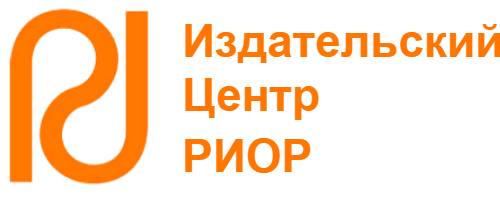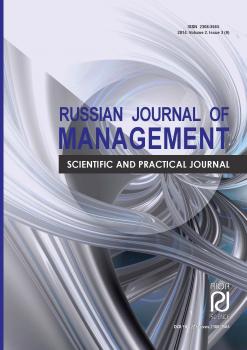Kazan, Kazan, Russian Federation
VAK Russia 5.2.3
VAK Russia 5.2.4
VAK Russia 5.2.5
VAK Russia 5.2.6
VAK Russia 5.2.7
UDC 338.439
The compliance control methodology for reporting agricultural organizations in the context of climate change is aimed at ensuring that enterprises comply with regulatory, environmental and climatic requirements. The main focus is on the integration of climate risks into the management and reporting system, including the analysis of regulatory requirements, assessment of physical and transitional risks, as well as the implementation of ESG standards. Using tables and diagrams as an example, practical reporting tools are demonstrated, including the stages of data collection, risk analysis, and visualization of results. It shows how investments in energy efficiency, water-saving technologies and equipment modernization contribute to reducing the carbon footprint and strengthening competitiveness. The study highlights the relationship between climate ratings and compliance control: transparent reporting enhances companies' positions in sustainability indexes, which opens up access to green financing. The article's conclusions emphasize the role of compliance control as a strategic tool to minimize climate risks, comply with regulatory standards, and strengthen stakeholder confidence. Objectives. Substantiation of the need to transform compliance control in agricultural organizations for the most effective management of climate risks and the formation of transparent management reporting in the context of global environmental changes. Methodology. The research methodology is based on a dialectical approach, observation, synthesis of disparate information, and analysis of the results obtained. The information base of the research was made up of scientific papers and research by Russian and foreign scientists, research by consulting companies. Results. The article demonstrates that the introduction of a multi-stage compliance control methodology, including analysis of regulatory requirements, diagnosis of climate risks and integration of ESG standards, allows agricultural organizations to generate transparent reporting, despite systemic barriers - legal uncertainty and the gap between financial and non—financial data. The proposed solutions, such as digitalization of processes, climate audit, and data synchronization between departments, increase the accuracy of forecasting the economic effects of climate change, as evidenced by examples of investments in equipment modernization with reduced emissions. A direct relationship has been established between the quality of compliance control, positions in international ratings and access to "green" financing, which enhances business competitiveness. The practical value of the methodology is to reduce operating costs, minimize penalty risks and strengthen the trust of stakeholders, ensuring the long-term sustainability of the agricultural sector in the face of climate challenges. Conclusions. The article emphasizes that the transformation of compliance control in the agricultural sector is becoming a critical condition for adaptation to climate change, since the integration of climate risks into management reporting not only ensures regulatory compliance, but also forms the basis for strategic planning. Overcoming systemic barriers such as legal uncertainty and lack of expertise requires the introduction of digital tools, data synchronization between departments, and active participation in climate ratings, which increases transparency and attracts green investments. The results demonstrate that companies implementing climate audit and ESG standards reduce operating costs, minimize penalty risks, and strengthen their reputations by turning environmental challenges into competitive advantages. Thus, effective compliance control based on an interdisciplinary approach and technological innovations is becoming a key driver of sustainable agricultural development in the context of global climate transformation.
compliance control, climate risks, management reporting, ESG standards, sustainable development, international ratings, green financing
1. Antonina Davidovna Levashenko, Ivan Sergeevich Ermokhin, Kirill Aleksandrovich Chernovol Problems of harmonization of Russian and foreign standards of green financing // Economic policy. 2023. No. 1. URL: https://cyberleninka.ru/article/n/problemy-garmonizatsii-rossiyskih-i-zarubezhnyh-standartov-zelenogo-finansirovaniya (date of request: 02/04/2025).
2. Bobrova Olga Sergeevna From sustainable development to esg: the experience of european companies and governments // Public administration. Electronic bulletin. 2022. No.91. URL: https://cyberleninka.ru/article/n/ot-ustoychivogo-razvitiya-k-esg-opyt-evropeyskih-kompaniy-i-pravitelstv (date of reference: 02/04/2025).
3. Zhukova Elena Vladimirovna Implementation of esg risk management functions in the organization's management system // Financial Markets and Banks. 2022. No. 1. URL: https://cyberleninka.ru/article/n/vnedrenie-funktsiy-upravleniya-esg-riskami-v-sistemu-upravleniya-organizatsiey (date of request: 02/04/2025).
4. Zakirova A.R., Klychova G.S., Kirillova V.E., Yusupova A.R. Social reporting: purpose, basic principles of formation, structure // Bulletin of Kazan State Agrarian University. 2019. Vol. 14. No. 1.H.52.P.120-125.URL: https://doi.org/10.12737/article_5ccedf721fe994.27768489
5. Ivanchenko Nadezhda Shavkatovna, Khoshimov Tokhirjon Holovich, Kiselyov Oleg Mikhailovich Ways of developing a compliance control system: compliance risk management of the company // Journal of Applied Research. 2021. No. 1. URL: https://cyberleninka.ru/article/n/puti-razvitiya-sistemy-komplaens-kontrolya-upravlenie-komplaens-riskami-kompanii (date of reference: 02/04/2025).
6. Kartskhiya A.A. Corporate governance in the context of global climate change // Civil Law. - 2022. - No. 2. - pp. 16-20.
7. Klychova G.S., Zakirova A.R., Yusupova A.R., Klychova A.S. The main directions of corporate social responsibility assessment of business // Bulletin of Kazan State Agrarian University. 2018. Vol. 13. No. 3. Part 1. pp. 129-133. URL: https://doi.org/10.12737/article_5bcf579e4860c0.23941805
8. Klychova G.S., Zakirova A.R., Kamilova E.R. Development of accounting for social initiatives in agricultural organizations // Bulletin of Kazan State Agrarian University. 2015. Vol. 10. No. 1. pp. 25-29. URL: https://naukaru.ru/ru/nauka/article/5930/view
9. Klyuchnikov I.K., Sigova M.V., Klyuchnikov O.I. Sustainable financial instruments: current state and development prospects // Economic policy. 2023. Vol. 18. No. 4. pp. 78-107
10. Nikolaev A.A., Gordeeva E.R., Kogdenko V.G. ESG transformation // Threats and risks of financial security in the context of digital transformation: Proceedings of the VII International Scientific and Practical Conference of the International Network Institute in the field of AML/CFT. Moscow, November 24, 2021. Moscow: National Research Nuclear University "MEPhI", 2021. pp. 812-820.
11. Sidorenko G. G., Zhegalin L. S. Modern trends in the development of compliance in the field of environmental safety // Bulletin of the Academy of Knowledge. 2023. No. 2 (55). URL: https://cyberleninka.ru/article/n/sovremennye-tendentsii-razvitiya-komplaens-v-sfere-ekologicheskoy-bezopasnosti (date of request: 02/01/2025).
12. Shakhnazarov B. A. The law of sustainable development: concept, methodology. transformation of the esg agenda in the context of sanctions restrictions // Lex Russica. 2022. №7 (188). URL: https://cyberleninka.ru/article/n/pravo-ustoychivogo-razvitiya-ponyatie-metodologiya-transformatsiya-esg-povestki-v-usloviyah-sanktsionnyh-ogranicheniy (date of request: 02/04/2025).
13. Corporate Climate Responsibility Monitor 2022 // New Climate Institute. URL: https://newclimate. org/2022/02/07/corporate-climate-responsibility-monitor-2022/ (18.01.2025).
14. Klychova, G. S. Internal control and management aspects of cost accounting for dairy cattle breeding production in the conditions of digitalization / G. S. Klychova, A. A. Khairullin, M. G. Sergeeva // Regional Economics: Theory and Practice. - 2024. - T. 22, № 7(526). - S. 1308-1328. - DOIhttps://doi.org/10.24891/re.22.7.1308. - EDN HSLPIK.
15. Control support of the enterprise cost management system / G. S. Klychova, A. R. Zakirova, N. N. Nigmatullina [et al] // Bulletin of Kazan State Agrarian University. - 2021. - T. 16, № 4(64). - S. 115-121. - DOIhttps://doi.org/10.12737/2073/2073-0462-2022-115-121. - EDN JBCZAM.
16. Accounting and control functions of the model “input-output-result” in animal husbandry / D. A. Karagodin, M. I. Tsyguleva, G. Y. Ostaev, G. S. Klychova // Bulletin of Kazan State Agrarian University. - 2021. - T. 16, № 1(61). - C. 119-124. - DOIhttps://doi.org/10.12737/2073/2073-0462-2021-119-124. - EDN PWWTCT.
17. Klychova, G. S. Formation of management reporting on investments in long-term assets / G. S. Klychova, K. A. Parfenova // International Accounting. - 2022/ - T.25. - 2 (488). - S.163-179
18. Zharylgasova B.T., Suglobov A.E. Financial statement analysis -Moscow: KNORUS, 2006. -312 pp.
19. Nitetsky V.V. Zainetdinov F.V. Suglobov A.E. Audit practice in organizations (using a new Chart of Accounts): textbook. practice. manual. Moscow: Delo, 2002. 456 p.















